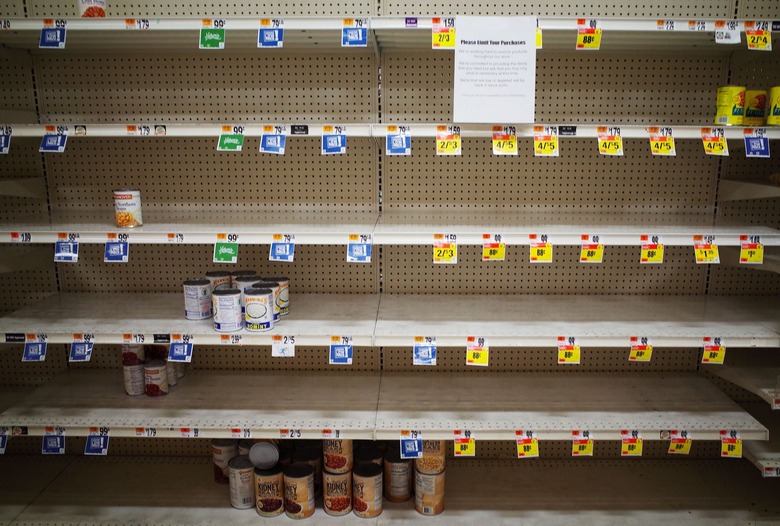What Are WIC Items? Why Should You Avoid Stockpiling Them During The Coronavirus Pandemic
When you're shopping at your favorite local grocery store during the coronavirus pandemic, the needs of your family and loved ones are probably the first and only things on your mind. But how you shop can negatively affect people in need who are restricted in their spending and shopping capabilities. Individuals who depend on the WIC program, for example, might suffer the most, and you could be buying products they need.
Groceries With Surprisingly Long Shelf Lives
WIC, or Special Supplemental Nutrition Program for Women, Infants and Children, is a federally funded program that assists more than 6 million women across the United States. The program is targeted toward low-income pregnant, breastfeeding, non-breastfeeding postpartum women and children up to the age of 5 with supplemental foods and nutrition education, and aimed to safeguard women and children who have a high nutritional risk. Participants receive a monthly check or voucher to purchase healthy foods that will supplement their diets with healthy nutrients.
Iconic breakfast items like cereal, eggs, yogurt and juice, and other nutritional items like fruits and vegetables, tofu, peanut butter, milk, canned fish and beans are offered under the WIC program. Items marked "WIC" at stores are specifically for women utilizing the program. When those items are purchased unknowingly by other shoppers, those in need no longer have the option to add them to their grocery carts.
The next time you make a trip to the supermarket, take the time to check the pricing stickers and try to avoid things labeled with WIC if possible. Stockpiling goods might seem like the best thing to do in these uncertain times, but by purchasing WIC items, you could unknowingly be denying someone what they need.
Looking for more information on coronavirus as it relates to food? Here's an answer guide to all of your questions.
